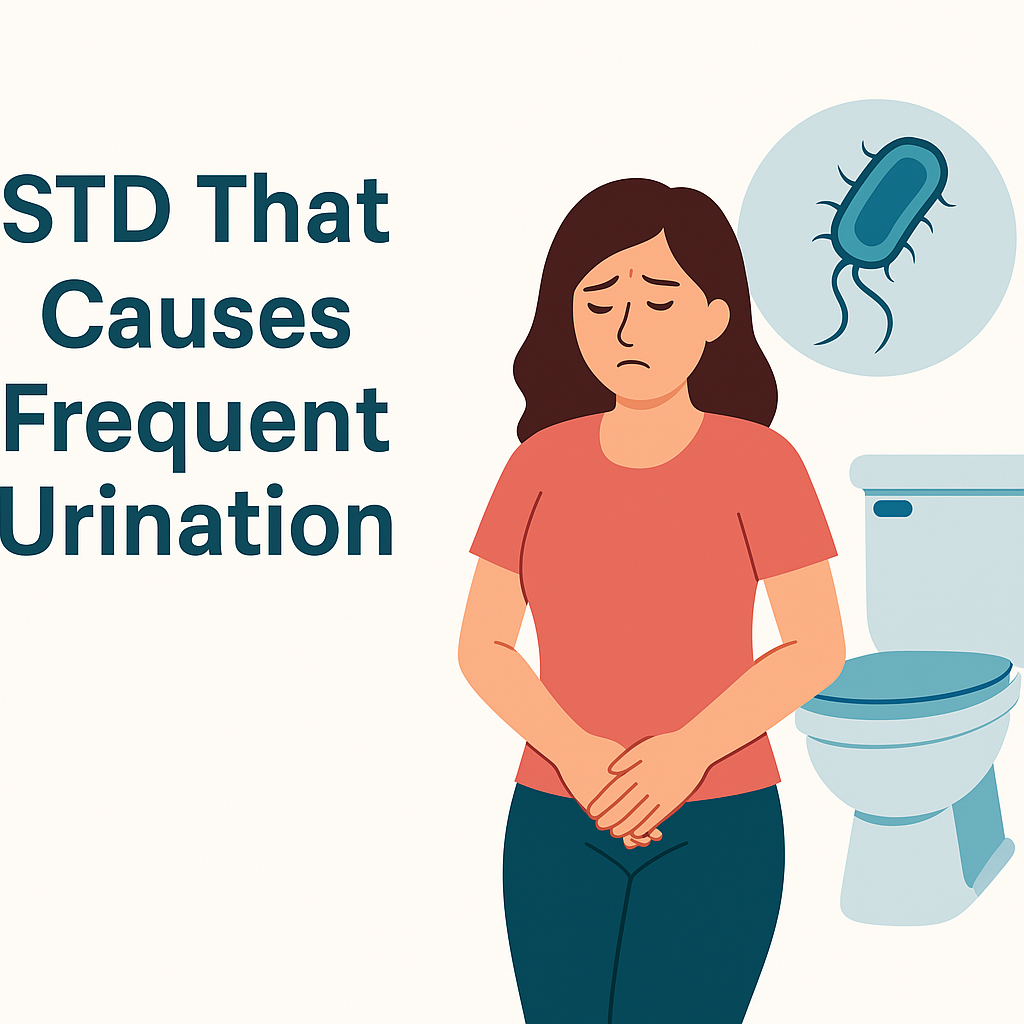Frequent urination can be annoying and even alarming—especially when it seems to come out of nowhere. While it’s often linked to bladder issues, infections, or diet, some sexually transmitted diseases (STDs) can also cause frequent urination.
In this article, we’ll explain which STDs may lead to frequent urination, what other symptoms to watch for, and when it’s time to see a doctor.
Can an STD Cause Frequent Urination?
Yes. Certain STDs cause inflammation or irritation in the urinary tract, leading to the urge to pee more often. This is especially true when the urethra (the tube that carries urine out of the body) becomes infected or inflamed—a condition called urethritis.
STDs That Can Cause Frequent Urination
1. Chlamydia
- One of the most common STDs in both men and women
- Can infect the urethra and cause burning, pain, and frequent urination
- Other symptoms: abnormal discharge, pelvic pain, or testicular swelling
2. Gonorrhea
- Similar symptoms to chlamydia
- Can cause urethritis, making you feel like you need to urinate often
- Also causes pain when peeing, unusual discharge, and sometimes fever
3. Trichomoniasis
- Caused by a parasite, more common in women but affects men too
- Can cause burning or itching, as well as the frequent urge to urinate
- May also cause foul-smelling vaginal discharge or penile irritation
4. Herpes (Genital Herpes)
- Herpes sores near the urethra can cause irritation or pain when peeing
- During outbreaks, it may feel like you need to urinate more often
- Also causes blisters, itching, and flu-like symptoms during the first outbreak
Other Possible Causes (Non-STD)
Not all frequent urination is caused by an STD. Other causes include:
✔️ Urinary Tract Infections (UTIs)
✔️ Bladder infections (cystitis)
✔️ Overactive bladder
✔️ Diabetes or high blood sugar
✔️ Anxiety or drinking too much caffeine or alcohol
When to See a Doctor
You should see a doctor if: ✔️ You feel the need to pee constantly, even with little urine coming out
✔️ You have burning, itching, or pain while urinating
✔️ You notice discharge, odor, or unusual genital symptoms
✔️ You had unprotected sex recently or a partner tested positive for an STD
Diagnosis and Testing
✔️ A urine sample to test for bacteria or STDs
✔️ Swab tests (especially for women) to check for vaginal infections
✔️ Blood tests if needed to detect herpes or other infections
Treatment Options
✔️ Chlamydia & Gonorrhea: Treated with antibiotics
✔️ Trichomoniasis: Treated with oral medication like metronidazole
✔️ Herpes: Managed with antiviral drugs to reduce symptoms and outbreaks
Avoid sex during treatment and make sure your partner gets treated too.
Prevention Tips
✔️ Always use condoms or dental dams during sex
✔️ Get tested regularly—especially if you have new or multiple partners
✔️ Avoid douching or harsh soaps that can irritate the urinary tract
✔️ Urinate after sex to flush out bacteria
Final Thoughts
Frequent urination can be more than just a bladder issue—it may be your body’s way of signaling an STD. When paired with burning, discharge, or recent unprotected sex, it’s time to get tested.
💙 Don’t ignore the signs. Get checked, get treated, and protect your health.
Related Reads
References
- CDC – Chlamydia: cdc.gov/std/chlamydia
- CDC – Gonorrhea: cdc.gov/std/gonorrhea
- CDC – Trichomoniasis: cdc.gov/std/trichomonas
- CDC – Genital Herpes: cdc.gov/std/herpes
Let me know when you’re ready for the featured image!

Leave a Reply